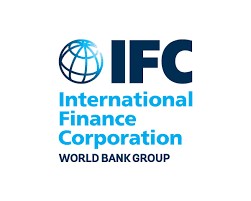The International Finance Corporation (IFC), a member of the World Bank Group, hosted its second Family Business Governance Workshop in Accra.
It brought together entrepreneurs, business leaders, and governance experts to discuss strategies for strengthening family-owned enterprises in Ghana.
The workshop, dubbed: “Family Governance and Legacy: The Family Constitution Blueprint”, formed part of IFC’s Integrated Environmental, Social and Governance (IESG) Programme, supported by Switzerland through the Swiss State Secretariat for Economic Affairs, SECO.
A statement issued in Accra said the Programme aimed to help businesses embed sustainability, risk management, and corporate governance standards into their operations.
With family businesses accounting for more than two-thirds of Ghana’s private enterprises, IFC stressed that stronger governance practices were essential for their continuity and contribution to the national economy.
At the event, IFC officials highlighted succession planning and family constitutions as two critical areas requiring urgent attention.
It said while many family-owned enterprises had grown into major players in sectors such as retail, hospitality, real estate, and agriculture, they often remained heavily dependent on their founders.
The statement said the lack of clear succession plans, IFC warned, leave these businesses vulnerable to disputes, leadership vacuums, and in some cases, collapse.
The workshop also featured case studies from other African markets where family constitutions were used successfully to maintain cohesion during generational transitions.
These examples, IFC said, demonstrated that governance reform was both feasible and effective in preserving the longevity of family-owned enterprises.
In addition to providing training and technical expertise, the IFC emphasised that sound governance practices could also improve access to finance.
It said Banks and investors were increasingly scrutinising governance frameworks when assessing companies, making it more difficult for firms with weak structures to attract capital.
It said Businesses that demonstrate succession plans and constitutions, by contrast, were seen as more resilient and reliable partners.
The IFC reaffirmed its commitment to supporting Ghanaian family enterprises through continued workshops, advisory services, and training sessions.
“By strengthening governance frameworks, the IFC aims to build resilience, preserve jobs, and secure the long-term contribution of family-owned businesses to Ghana’s economic growth,” it added.
“Family businesses are at the heart of Ghana’s economy, yet too many remain exposed to risks that could be prevented with proper governance,” said Moez Miaoui, IFC, Acting ESG Advisory Lead, Africa.
He said, “Succession planning and family constitutions are not optional, they are essential tools for protecting businesses, safeguarding jobs, and ensuring that wealth is preserved across generations.”
He said a family constitution, participants learned, could serve as a guiding document to clarify ownership rights, outline leadership transition rules, and establish dispute resolution mechanisms.
He said although not legally binding, such frameworks provided families with a reference point that reduced conflict and supported long-term stability.
Mr Kyle Kelhofer, IFC, Senior Country Manager for Ghana, said, “Family businesses are not only commercial entities but also legacies.”
He said, “The work we are doing together will ensure these legacies endure.”
GNA









